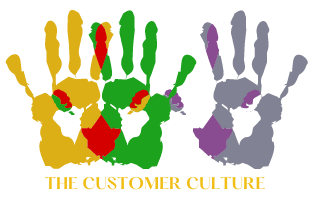In today’s digitally-driven world, customers expect more than just generic interactions—they crave personalized experiences that cater to their individual needs and preferences. Personalization has become a key differentiator for businesses looking to stand out in a crowded marketplace. In this blog post, we’ll explore the growing importance of personalization in the customer journey and discuss how businesses can leverage data and technology to deliver tailored experiences that drive customer satisfaction and loyalty.
- Understanding the Shift Towards Personalization
- Gone are the days of one-size-fits-all marketing. Today’s consumers expect businesses to know them on a personal level and anticipate their needs. This shift towards personalization is driven by advancements in technology, the rise of big data, and changing consumer expectations.
- Leveraging Data to Understand Your Customers
- The foundation of personalization lies in data. By collecting and analyzing customer data, businesses can gain valuable insights into their preferences, behaviors, and purchase history. This data can be used to create detailed customer profiles and segments, allowing for more targeted and personalized marketing efforts.
- Delivering Personalized Experiences Across Touchpoints
- From the initial interaction to post-purchase support, every touchpoint in the customer journey presents an opportunity for personalization. Businesses can leverage data and technology to tailor messaging, offers, and recommendations to individual customers based on their preferences and behavior.
- The Impact of Personalization on Customer Satisfaction
- Studies have shown that personalized experiences lead to higher levels of customer satisfaction and loyalty. When customers feel understood and valued, they are more likely to engage with a brand, make repeat purchases, and recommend it to others. Personalization fosters a deeper emotional connection between businesses and customers, driving long-term relationships.
- Best Practices for Implementing Personalization
- Start by collecting relevant customer data across all touchpoints, including website interactions, purchase history, and social media engagement.
- Invest in a robust customer relationship management (CRM) system to centralize customer data and facilitate personalized interactions.
- Leverage automation and artificial intelligence to deliver personalized recommendations, product suggestions, and targeted messaging in real-time.
- Continuously monitor and analyze customer feedback and behavior to refine personalization strategies and ensure relevance.
In an increasingly competitive landscape, personalization has emerged as a critical strategy for businesses looking to differentiate themselves and build stronger connections with customers. By leveraging data and technology to deliver tailored experiences across the customer journey, businesses can drive customer satisfaction, loyalty, and ultimately, long-term success. Embrace personalization today and watch your business thrive in the era of the empowered consumer.
